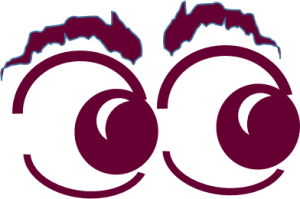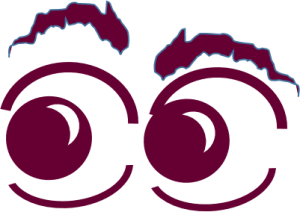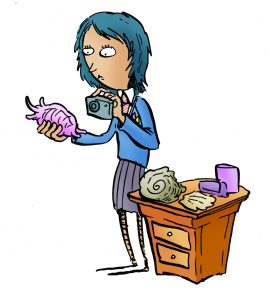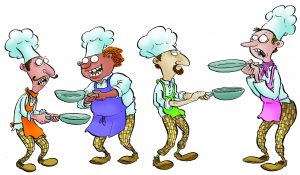
The Task for this Session
Design a scientific enquiry – or in other words, a lesson in which your student will do an investigation.
The aim of the investigation is to test ideas about why things float or sink. Your lesson should use everyday resources that you plan and collect in advance. Make sure everything is safe to handle and safe to put in the water. Plan lots of opportunities for making and talking about observations. Plan ways to encourage your student to use the word too.

Observing in Science
In science, observing is not just ‘looking around’. It’s looking with purpose. We are using our senses (usually our sense of sight) to ‘observe’ the world around us in order to come with ideas about how the world works – and then test them.

So suppose you’re looking at a plastic lid floating on water – and you come up with the idea that shapes with air inside seem to float better than solid objects. Great – here’s a factor that you think affects how well an object floats. To test your idea you can find lots more solid shapes and shapes with air inside – and then observe whether they float or sink to test your idea.
In science, we don’t just want a couple of observations – we want lots of observations – because the more we have, the more confident we can be that our idea is thoroughly tested. And in science, we try to make our observations systematically. That means we use strategies like changing one thing at a time when we run an investigation. We might study an object of interest at regular intervals or from several different angles. We also ask other people to observe too – because if more people observe what we observed, that also helps us to feel more confident about our conclusion.
Questions in Science
Now a moment ago, I said that science ask questions about the “world around us”. That needs to be a bit more carefully defined. There are lots of things happening around us that are not particularly suited to the kinds of investigations we do in science. It’s not the first job of science to tell you how to organise a birthday party nor to say how much a country should spend on its navy nor even to tell you whether to have pancakes for lunch.

Science asks and investigates questions about the natural world – so the world of natural objects and events.
For example it is the job of science to explain why it gets dark later in the day in the summer, whether shells come in different colours and what kinds of animals might once have lived in them, why diseases spread faster when people are living very close together, whether bubbles are always round, and why a pancake should always come down after you toss it in the air (or why it doesn’t!)
All of these questions are ones we can investigate scientifically – by coming up with ideas and gathering observations to test them out.

Lesson Planning Tool
This link will take you to a survey tool that will help you design a session
Lesson planning tool
| Learn to Teach Navigation |
| Learn to Teach Introduction |
| Session 1: Scientific Enquiry |
| Session 2: Learning Objectives |
| Session 3: Science and History |
| Session 4: A Multidisciplinary Enquiry |
| Bonus Activity – Teaching with a Bridging Question |
| Find out more about training and careers in teaching at https://www.canterbury.ac.uk/education/faculty-of-education.aspx |
